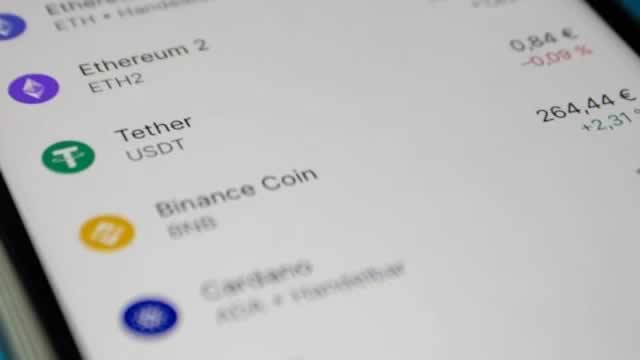
Custodia Bank CEO Sees Tokenized Deposits Transforming Payments Worldwide
Crypto Economygeneral
Custodia Bank CEO Caitlin Long stated that stablecoins and tokenized deposits could replace the Automated Clearing House system by 2030. She made these comments during a discussion with TheStreet Roundtable host Scott Melker. Long emphasized that tokenized dollars will become important payment instruments.
📋 Article Summary
Transforming the Future of Payments: Custodia Bank CEO's Vision for Tokenized Deposits
In a groundbreaking revelation, Custodia Bank CEO Caitlin Long has shared her visionary perspective on the transformative potential of stablecoins and tokenized deposits. During a discussion with TheStreet Roundtable, Long boldly predicted that these innovative financial instruments could potentially supplant the Automated Clearing House (ACH) system by the year 2030, ushering in a new era of global payments.
Long's insights underscore the rapidly evolving landscape of the cryptocurrency industry, where stablecoins and tokenized deposits are poised to redefine the way we think about and interact with traditional financial infrastructure. By tokenizing fiat currencies, these digital assets offer a unique value proposition – the stability of government-backed currencies coupled with the speed, transparency, and decentralization of blockchain technology.
As the CEO of Custodia Bank, a cryptocurrency-focused financial institution, Long's commentary carries significant weight in the industry. She highlighted the growing importance of tokenized dollars as emerging payment instruments, emphasizing their potential to streamline and revolutionize the way we transact globally.
The implications of Long's predictions extend far beyond the realm of finance. Tokenized deposits could profoundly impact various sectors, from international trade and cross-border remittances to e-commerce and the gig economy. By reducing settlement times, lowering transaction costs, and increasing accessibility, these digital assets could unlock new opportunities for businesses and individuals alike.
However, the road to widespread adoption is not without its challenges. Regulatory scrutiny and concerns around financial stability and consumer protection will undoubtedly shape the future of this industry. Policymakers and industry leaders must work collaboratively to develop robust frameworks that foster innovation while safeguarding the interests of all stakeholders.
Nonetheless, Long's vision reflects the growing confidence and optimism within the cryptocurrency community. As the technology matures and regulatory environments evolve, the potential for tokenized deposits to disrupt traditional payment systems becomes increasingly compelling.
Investors, entrepreneurs, and industry enthusiasts will undoubtedly keep a close eye on the developments in this space, as the transformation envisioned by Custodia Bank's CEO could have far-reaching implications for the global financial ecosystem. The future of payments may indeed be closer than we think, with tokenized deposits leading the charge towards a more efficient, accessible, and inclusive financial landscape.